Hiya! I'm Arthur! This blog is about the languages I am learning or I want to learn!
Don't wanna be here? Send us removal request.
Photo
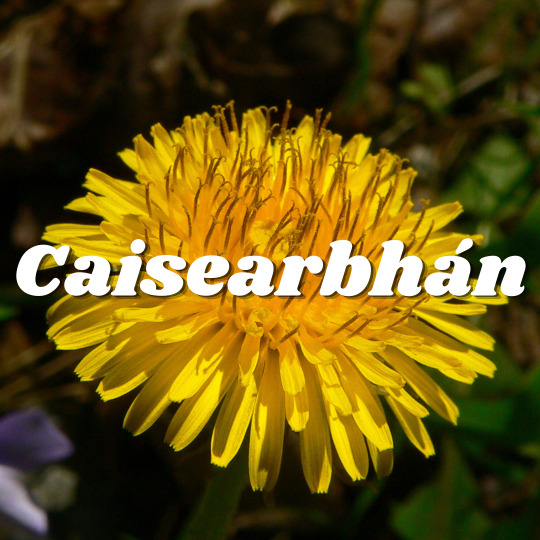

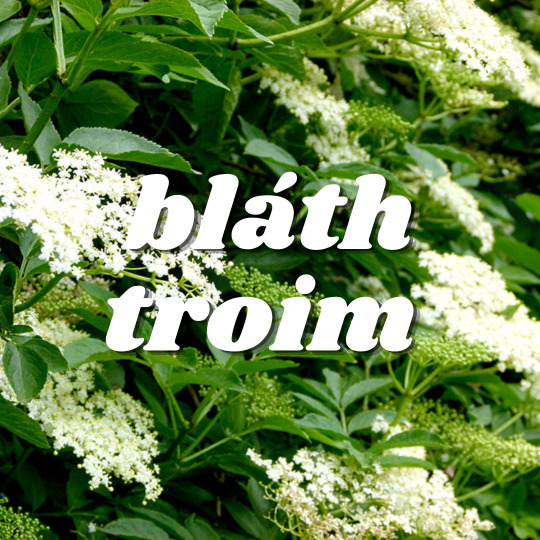
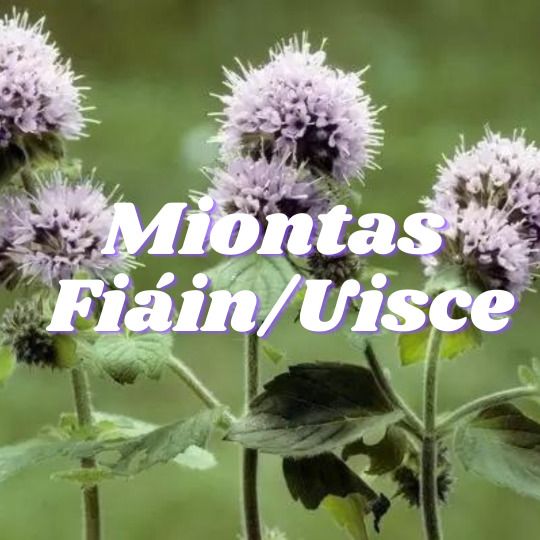

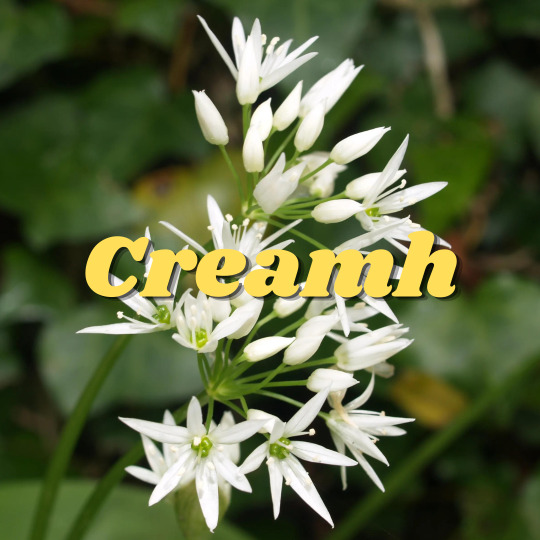
Luibheanna sealgaireachta agus caora as Gaeilge
Dandelion - Caisearbhán
Curly Dock - Duga Chatach
Elderflower - Bláth Troim
Wild/water mint - Miontas Fiáin, Uisce
Blackberries - Sméara Dubha
Wild Garlic - Creamh
453 notes
·
View notes
Text
Scary scary German syntax... right?
The following sentence exhibits a typical mistake German-learners make: Heute ich gehe in ein Museum.
It's not conjugation ("ich gehe" is correct!), it's not declension ("ein Museum" is correct too!). The issue is "heute ich gehe". Correct would be: Heute gehe ich in ein Museum (or: Ich gehe heute in ein Museum.)
What's the rule here?
It's unfortunately not simply "there can only be one word before the verb"
German word order is so difficult be cause it is so variable. All following sentences are correct and synoymous (though emphasis shifts):
Der Opa schenkt seiner Enkelin zum Geburtstag ein Buch über Autos.
Seiner Enkelin schenkt der Opa zum Geburtstag ein Buch über Autos.
Ein Buch über Autos schenkt der Opa seiner Enkelin zum Geburtstag.
Zum Geburtstag schenkt der Opa seiner Enkelin ein Buch über Autos. All mean: The grandfather gifts his niece a book about cars for her birthday.
What do they all have in common, syntax-wise? There's only one phrase in front of the finite verb. What does this mean? A phrase is a completed (!) unit that can consist of one or more words (depending on the word class (-> noun, verb, …)) Typical word classes that can be a phrase with just one word are:
Proper nouns, plural nouns, personal pronouns, relative pronous (Lukas kocht. Busse fahren. Ich schreibe. Der Mann, der kocht, …)
Adverbs (Heute, Morgen, Bald, Dort, Darum, …) Most other word classes need additional words to form a full phrase:
adjectives need a noun and article: der blaue Ball, der freundliche Nachbar
nouns need a determiner (= article): der Mann, eine Frau, das Nachbarskind
prepositions need… stuff (often a noun phrase): auf der Mauer, in dem Glas, bei der Statue
…
A finite verb is the verb that has been changed (=conjugated) according to person, time, … All verbs that are NOT infinitive or participles are finite. ich sagte -> "sagte" is the finite verb ich bin gegangen -> "bin" is the finite verb The infinitive and the participle are called "infinite verbs" and are always pushed towards the end (but not always the very end!) of the sentence: Ich bin schon früher nach Hause gegangen als meine Freunde.
So: Before the verb (that is not the participle or infinitive) there can only be one phrase.
Since "heute" is an adverb (-> forms a full phrase on its own) and "ich" is a personal pronoun (-> forms a full phrase on its own), they can't both be in front of the verb "gehe" You have to push one of them behind the verb: Heute gehe ich in ein Museum Ich gehe heute in ein Museum.
Both of these are main clauses (Ger.: Hauptsätze), which in German exhibit "V-2 Stellung", meaning the finite verb is in the second position (after one phrase).
What happens if we push all phrases behind the finite verb?
Gehe ich heute in ein Museum? (Watch out: Gehe heute ich in ein Museum would be ungrammatical! The subject has to come in the second position)
It's a question now!
In German, question sentences (that do not start with a question word like "Was?", "Wo?", …) start with the finite verb (called "V-1 Stellung").
Questions, main clauses,… what's missing?
Dependent clauses!
The third type of sentence exhibits "V-letzt Stellung" or "V-End Stellung", meaning the finite verb is at the very end of the sentence. Ich bin gestern in ein Museum gegangen, … main clause -> V-2 Stellung … weil es dort eine interessante Ausstellung gab. dependent clause -> V-letzt Stellung If you want to practice this....
... determine if the following German sentences are correct. If not, what would be the right way to say it?
Der Zug war sehr voll.
Gestern ich war in der Schule.
Die Lehrerin mich nicht hat korrigiert.
Gehst du heute zur Arbeit?
Das Buch ich finde nicht sehr interessant.
To practice this further, translate the following sentences into German and focus on the order of words:
The boy gave the ball back to me.
I called my girlfriend because I missed her.
The girl saw her brother at the train station.
The horse, which was standing on the field, was white and black.
342 notes
·
View notes
Text
I'll discuss this in my next video if I ever get around to making it, but a lot of learners tend to pronounce words like an and ag with an undue amount of stress.
Examples of Native Speakers
"A John Joe, tá mé ag déanamh an rud... críostúil" (John Joe, I'm doing the... christian thing)
Here we hear the ag skipped entirely, and the vowel in an reduced.
"Ehhh... bíodh na naipicíní i gcónaí ar an mbord a Sadie" (Ehhh... always have the napkins on the table Sadie)
Here we hear the 'n' dropped and the vowel again reduced, "ar a mbord".
"Mar tá mé ag obair" (Because I'm working)
Here we hear the vowel in "ag" reduced, but the "g" pronounced before the vowel. like "tá mé gobair"
Explanation
Similar to how in English we often reduce common words like "the" (we don't always say it with the "thee" sound, often it's just an "uh"), or we reduce "and" to "n" (To the point where people will think things like "Case in point" are "Case and point").
When I say "reduce" in this, that's basically what it means, the vowel just becoming a more relaxed "uh" sound. (See the notes for more information on this sound).
In Irish, at regular speeds of speech, an is not usually pronounced with the /a/ vowel you might expect, it usually gets reduced down to /ə/ which is the symbol we use for that neutral unstressed vowel, like what you might have in "the" a lot of the time. And also, in many situations, the n can be dropped entirely. It's similar for ag, which most learners correctly know to pronounce like eig (it's spelt with an 'a' for historical reasons, but the preposition is usually pronounced with an /e/ sound), and it is like that when used as a preposition generally. But when it's used with verbal nouns for the "to be x-ing" construction, it's usually reduced down to the /ə/ sound again. And the 'g' only gets pronounced before vowels.
Notes
More about the /ə/ sound:
youtube
This kind of reduction to /ə/ happens with most short 'grammar' words you can think of: an, na, i, mo, a, ar (when used as a verb particle), sa and others
I don't have a specific source for this post, but you can find this information in basically any dialectal study, so things like Gaeilge Chorca Dhuibhne, The Irish of West Muskerry, The Irish of Iorras Aithneach, etc.
I would've included the other clips as videos but apparently I can only upload one video to a post :(
Let me know if you found this kind of thing interesting, commentary on examples of native speakers
All speakers in these examples are from Galway, just because I have the most clips of those from Ros na Rún
If you have a keen ear you may have noticed that bord was pronounced with the Conamara pronunciation, /baurd/
If you have any questions about this stuff please ask, I love talking about it
90 notes
·
View notes
Text
Hey did you know I keep a google drive folder with linguistics and language books that I try to update regularly
#HOLY CRAP THIS IS AWESOME!!#resources#irish#gaeilge#scottish gaelic#gàidhlig#german#deutsch#welsh#cymraeg#latin#american sign language#asl
220K notes
·
View notes
Text
Language Study Resource Recommendation: Internet Archive’s Open Library website!
They offer thousands of books in many different languages. To find books in languages other than English; First click browse, and then click Subjects. Scroll all the way to the last subject and you’ll see a title that says “Books by Language,” and under this you will see choices for all kinds of languages, with a ‘see more’ tab for even more languages.
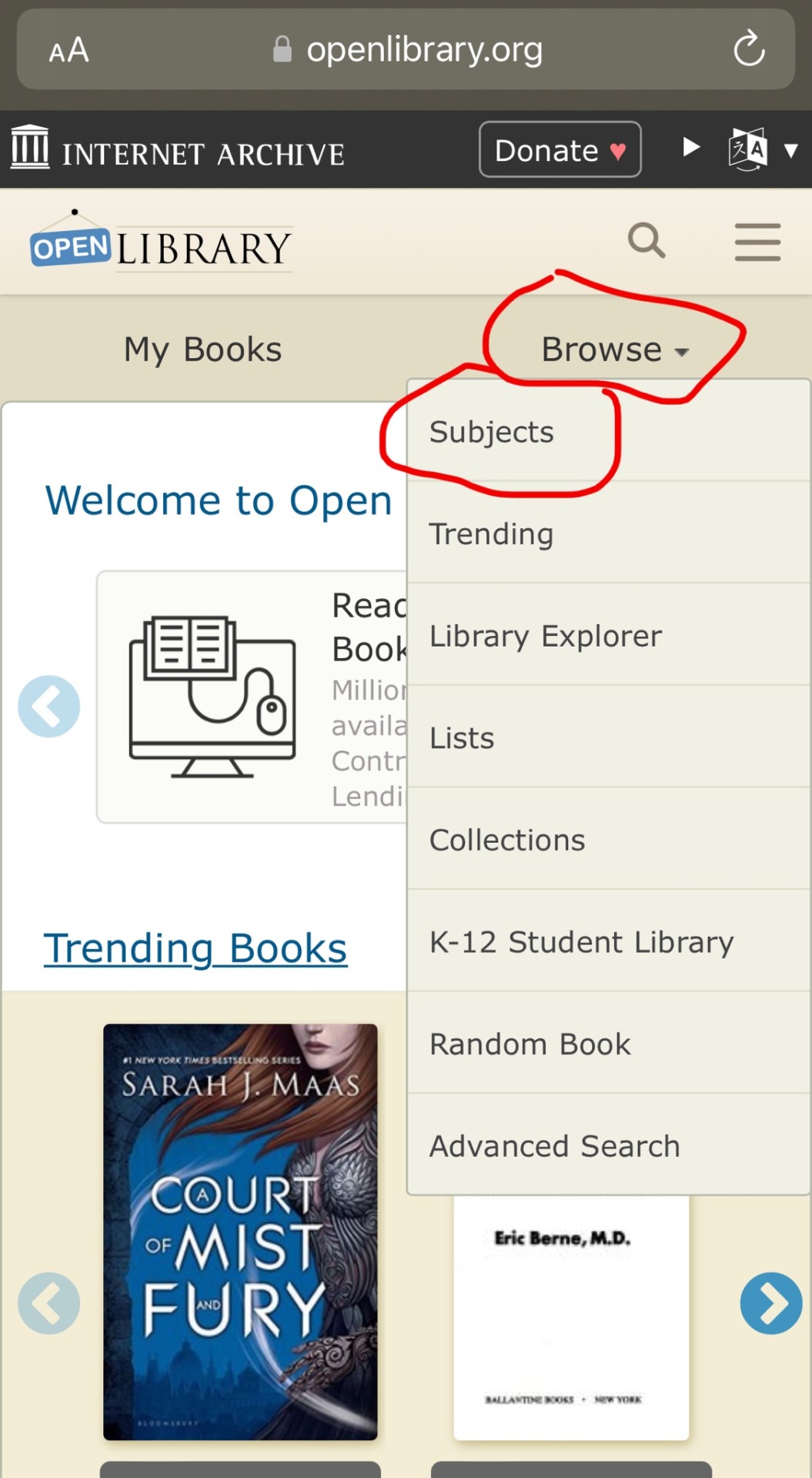
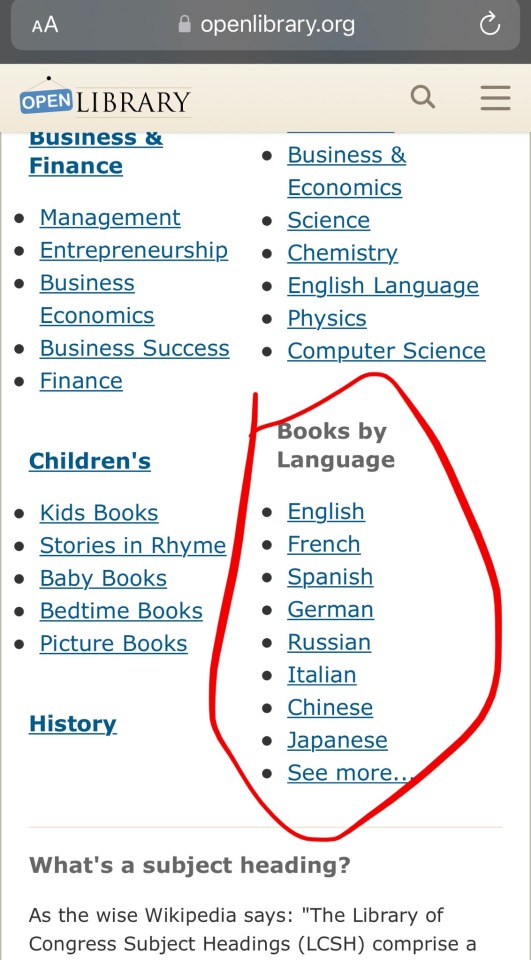
I don’t know much else about this website however because I just found out about it today.
#this is awesome!#resources#I'm surprised it has so many languages!#latin#german#deutsch#welsh#cymraeg#scottish gaelic#gàidhlig#irish#gaeilge
313 notes
·
View notes
Text
This week's word is...
Schadenfreude! (German)
[noun]
• Experiencing happiness in response to another person's misfortune.
3 notes
·
View notes
Text
Learning German & Staying alive
☄ https://german.net/ - free online resource with some tests, text, and planty more. Great for reading and reading comprehention;
☄ https://germanwithlaura.com - great course that explains grammar a bit more manageable;
☄ https://www.clozemaster.com - somewhat of a duolingo-copy, gamification at ift greatest. From 100 to 50 000 common words in context, can be used for free;
☄ https://wunderdeutsch.com/uk/grammatik-null-u/ - grammar, but in ukrainian. Helpful;
☄ https://golernen.com/ - more grammar, with ukrainian language avaliable;
☄ https://piracywhiskeypoetry.tumblr.com/post/136460408137/language-resources-masterpost - masterpost with multiple language;
☄ https://mein-deutschbuch.de/grammatik.html - another damn grammar
☄ https://www.quia.com/web - tests, some fun stuff.
sheesh I would need to make it pretty, but for now will do
2K notes
·
View notes
Text
The German language has quite a few animalistic verbs:
fuchsen ("to fox") = to annoy
hechten ("to pike") = to dive
reihern ("to heron") = to puke
dackeln ("to dachshund") = to walk slowly
aalen ("to eel") = to bask
vögeln ("to bird") = to have sex
einigeln ("to hedgehog in") = to curl up
hamstern ("to hamster") = to hoard
schlängeln ("to snake") = to wriggle
stieren ("to bull") = to goggle
unken ("to toad") = to gripe, augur doom
tigern ("to tiger") - to walk tigerishly
2K notes
·
View notes
Text
Welsh LGBTQIA+ Terms IPA Pronucniation:
Anneuaidd- Nonbinary /anei̯ai̯ð/
Anrhamantus- Aromantic /anr̥amantɪs/
Anrhywiol- Asexual /anr̥ɪu̯jɔl/
Cwiar- Queer /ˈkw̥ʰjar/
Cyfunrhywiol- Homosexual /ˈkəvɪnr̥ɪu̯jɔl/
Deurywiol- Bisexual /ˈdei̯r̥ɪu̯jɔl/
Hollrywiol- Pansexual /hoːɬr̥ɪu̯jɔl/
Hoyw-Gay /ˈhɔi̯.u/
Lesbiaidd- Lesbian /lɛsbi̯ai̯ð/
Rhyngryw- Intersex /r̥əŋr̥ɪu̯/
Rhyweddgwiar- Genderqueer /r̥əwɛð'gw̥ʰjar/
Trawsryweddol- Transgender /trau̯sr̥əwɛðɔl/
Following the previous post, my informal/casual transcription left too much ambiguity, so I've taken it upon myself to learn the International Phonetic Alphabet (IPA) to help make things a lot clearer for those interested.
238 notes
·
View notes
Text
Some of the online Latin resources I use
None of these are particularly beginner friendly so I don't know who this post is for, but anyway:
Lewis and Short's A Latin Dictionary
Big, has entries for pretty much any word you might want to know about and each entry has detailed notes about usage.
Lewis's An Elementary Latin Dictionary
Less information in each entry than Lewis and Short, but occasionally has entries for words that the other doesn't.
Wiktionary
Straightforward, easier to search, and gives you declension/conjugation tables. It almost always has Lewis and Short as a source, but can miss out important details in the definition.
Allen and Greenough's Latin Grammar
Explains grammar rules, exceptions, and usage very thoroughly - the explanations can be hard to understand the first time.
Smith and Hall's English-Latin Dictionary
A lifesaver for English to Latin translations, the only downside being that it's from 1893.
66 notes
·
View notes
Text
My Dive into Latin Pet Names
So, those of you who've read A Study in Hands probably noticed the Latin pet names. Well. I did quite a bit of research into that, particular to names from ancient Rome (the Poems of Catullus were a notable source alongside other academic studies of letters and graffiti).
(I swear, the hours I've lost to research holes...)
There were expected names, a lot of diminutives, animals, honey-like terms, and other names that made a lot of sense. Here's what I found!
Tagging @mrsmungus, @aislinnstanaka, @udaberriwrites, @lena-hills and @danceswithdarkspawn, since you might be interested.
Note - names are specific to a male subject, where applicable
Carissime - my most dearest Dulcissime - my most sweetest Bellulus - little beauty Mellitus - sweet honey, darling, lovely . Anaticulus - little duck Columba - dove Lepus - hare Palumbulus - little dove Passerculum - little sparrow . (Mi) Amor - my love (Mi) Anime - my soul, my beloved one (Meum) Corculum - (my) little heart, sweetheart (Meae) Deliciae - my darling, my delight, my pleasure Dulcis - Sweetie (Mi) Lepor - my delight, my charm (Mea) Lux - my light Mel - honey Meliculum - little honey Melimelum - honey-apple (Mi) Ocelle - my little eye, apple of my eye (Mea) Rosa - my rose (Meum) Suavium - my sweetheart (Meum) Verculum - my little springtime (Mea) Vita - my life (Mea) Voluptas - my joy, my desire
135 notes
·
View notes
Text
Introduction!
Hello! I'm Arthur! I use he/it pronouns! This is my blog to collect resources and mostly just to keep myself motivated!
English is my native language (C2)! I might post progress stuff but I think this blog will be majority reblogs. If I feel like I've moved up a proficiency level or if I wanna start learning another language, I'll try and update this intro post!
Here are the languages I'm trying to learn currently:
Latin (A2)
Irish/Gaeilge (A2)
Scottish Gaelic/Gáidhlig (A1)
Welsh/Cymraeg (A1)
American Sign Language/ASL (A1)
(I would also like to learn German/Deutsch but I haven't started learning it yet!)
Thank you so much for reading and I hope you enjoy my blog!
1 note
·
View note
Note
Hi! I’m sorry if this is an annoying question but I’m kinda stuck here. I want to learn ASL but I don’t know what to use to learn it. Do u have any free recommendations?
Hi there !! 👋🏻 Not annoying at all 😊 My go-to for learning ASL is both Youtube and an app called Memrise ! On Youtube, Bill Vicars has a channel where he has tons and tons of videos teaching ASL !! They are especially helpful because each video spends time on a different topic. He’ll go through vocab as well as working on sentences and structure and proper form ! I’ll link one of his first lessons below 😊 Also, Bill Vicar’s video called “100 Basic Signs” is a great starting video !!
I would probably suggest starting with the app called Memrise just to learn some common signs before diving right in to Bill’s videos on Youtube. Just because he will sign to explain what he means by certain things so it may be helpful to learn some basic signs so you don’t get overwhelmed 😊
Memrise is awesome because it is a free language learning app where you can learn tons of different languages but especially sign language ! It uses GIFs and photos to show each sign and really helps them stick in your head, it is a great reference to be able to go back to😊
Let me know if you have anymore questions, I’m here to help💕
youtube
70 notes
·
View notes
Note
Hi I hope I'm not a bother!! I jist saw your blog and I was SO excited. I've been trying to learn ASL since this summer and I was wondering, do you happen to know of a reliable source to learn ASL grammar?? I would really appreciate the guidance 🙏
Hi, you're no bother at all! As I said in my "ask me anything" post, I'm more than happy to help other learners however I can. <3
ASL is tricky in that you can find a signing dictionary just about anywhere, but there don't seem to be a whole lot of resources for grammar outside of immersion. However, I recently came across a youtube channel called 'Learn How to Sign' that has some great videos on particulars like sentence structure, speaking in the affirmative versus the negative, etc that taught me some stuff I'd been wondering about for years.
Other than that, I've seen a lot of DHOH (Deaf/Hard of Hearing) people on tiktok teaching ASL and addressing particular, direct questions from their audience. I'd link them, but unfortunately I didn't do a very good job at saving them.
If anyone else has any resources they'd like to add, please feel free to! Or if anything I said was incorrect, please let me know and I'll fix it. Hope this helped! :)
22 notes
·
View notes
Text
Resources I'm using to learn ASL!
ASL is American Sign Language and it's a beautiful and complex visual language used primarily by Deaf and Hard of Hearing people. I've been studying it for about 3 months now and have completely fallen in love with it! My roommate and his gf both know varying levels of ASL (she's fluent and he's around my level) so it's been great to practice with them when we're able.
A lot of my language progress has been coming from youtube videos and practicing by myself (especially in a mirror or recording myself) so I wanted to share some of the resources I've found particularly helpful!
HandSpeak ASL Dictionary: This is a great database where you can look up how to sign various words
What The Deaf?! Podcast: A podcast run by two Deaf women talking about various aspects of their lives, gives some insight into Deaf culture and their lived experiences
ASL Fingerspelling Receptive Practice: They show short videos of a fingerspelled word that you then type out to see if you interpreted it correctly. Fingerspelling is a super important skill in ASL so I highly recommend practicing either with sites like this or through other resources meant for receptive practice!
Bill Vicars ASL 1 YouTube Lessons: These are more extended lessons taught entirely through sign while still being largely understandable. I recommend checking these out once you have a little more of a foundation in vocabulary so you can follow along better!
Chris Gorges ASL Basics YouTube Lessons: He gives clear and concise explanations for a lot of different concepts. I went through all of the videos in this playlist which helped me build up my vocabulary quickly
The Daily Moth YouTube Channel: They produce daily news segments signed in ASL with captions, which I’ve found is great for receptive practice and semi-immersion even though they still go quite fast for my current level
I hope some of you find these resources helpful, and it would be awesome if anyone else learning ASL could reply with some other resources you've found beneficial too!
2K notes
·
View notes
Photo




In the pictures, I only included the singular forms, here are the plurals;
Sionnaich, madaidhean ruadh (?)
Coineanaich
Mathain
Losgannan
9 notes
·
View notes
Text
So you want to learn Gaelic
These are just some resources and organisations I have found/used in my learning so far
Sabhal Mòr Ostaig - The Sabhal Mòr Ostaig is a Gaelic school on the Isle of Skye. They offer both in person and long distance courses in a variety of Gaelic related subjects and a variety of levels. Obviously I wouldn't recommend taking on a full university degree unless you're really interested in that as it's a lot of time, money, commitment etc, but I've listed them because they're a major contributor to the Gaelic learning world. They also have online summer courses for learners of various levels
Duolingo - This is a great starting place. Their Gaelic course was created in partnership with the the Sabhal Mòr Ostaig. The full grammar notes for the course can be found here. From what I've found, this course is estimated to get you to roughly A1 going on A2
LearnGaelic - This website has a mixture of basic grammar intro lessons as well as a dictionary. I find that the dictionary sometimes has trouble filtering relevance of vocab, but overall I find it quite helpful
Gaelic Books Council - The Gaelic Books Council supports Gaelic writers and publishers, promoting and selling Gaelic books in a range of genres. They have both original works, and popular works which have been translated into Gaelic
Acair Books - A Stornoway based publisher of Gaelic, Scots and English books. They have a large selection of children's books which are great for beginner learners, but also have adult books
The Scottish Book Trust - A charity dedicated to reading and writing in all of English, Scots and Gaelic. You can browse their website for a range of poetry, prose, learning resources, writers' awards and fellowships
Am Faclair Beag - The Little Dictionary. I find this dictionary is slightly better at filtering by relevance than the LearnGaelic dictionary, so I often use it to cross reference. LearnGaelic has a tendency to give you the most obscure translation first, whereas Am Faclair Beag will usually prioritise more common translations
Speak Gaelic - Speak Gaelic is a series created by BBC ALBA. There is a YouTube series with Joy Dunlop, a podcast with John Urquhart, and a website with quizzes to test your learning. The initial series is roughly A1, with some of the later episodes aiming for A2. A good intro, though the website is known to be a bit glitchy
Beag air Bheag - Little by Little. Also by the BBC, this is a slightly more advanced series than Speak Gaelic, but hosted by the familiar John Urquhart. I can't find the exact CEFR level, but I seem to remember it being advertised as B1-2
BBC ALBA - The BBC's Scottish Gaelic programs. I occasionally scroll through their iPlayer. Some of the shows have captions which I find helpful, although not all do. Children's TV is always a great way to learn a new language as it is designed with children learning the language in mind. I think I saw they had some Moomin Valley last time I looked
Faclair nan Gèidheal - The Dictionary for Gayls (gay/queer Gaels). This is a great resource filled with a tonne of terminology relating to the LGBTQ+ community. This is where I get vocab like tar-ghnèitheach and neò-bhìnearaidh from
Open Book Reading - An organisation who run Gaelic speaking, reading and writing sessions both in person and online. I'd recommend looking at their Eventbrite page
The Mega Folder - I'm sure people have seen me talk about this before. I'd personally recommend Scottish Gaelic in Twelve Weeks
529 notes
·
View notes